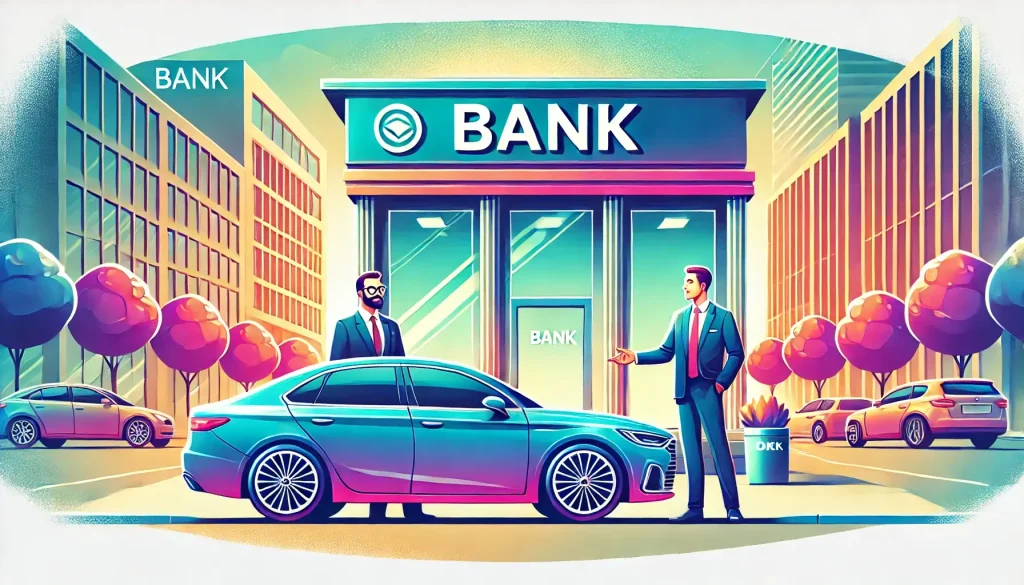Leasing a car is a popular choice for many today, especially as inflation makes vehicle ownership harder to afford. But for Muslims, the main question often arises: “Is leasing a car halal or haram?”. This concern ties deeply to Islamic teachings and the financial principles guiding everyday life. I remember facing the same dilemma when I needed a vehicle but wasn’t ready to commit to buying one outright. It felt practical, but the uncertainty about its permissibility in Islam made me pause and dig deeper into the topic.
As I researched, I discovered that the answer is not black and white. The advantages of leasing, like lower upfront costs and flexibility, make it appealing. Yet, many Muslims wonder if it aligns with Islamic principles. Scholars focus on whether leasing involves interest (riba) or violates any ethical guidelines of Islam. Through this article, I aim to share insights, references, and opinions from Islamic scholars, all of which helped me navigate this decision. Is cryptocurrency halal, Get shocking answer!
What Does Leasing a Car Mean?
Before diving into whether is leasing a car halal, it’s crucial to understand what leasing actually involves. A car lease can be a convenient and flexible option for those who don’t want to fully commit to purchasing a vehicle outright. Instead, the individual makes regular payments over a specific period of time to use the car, with the terms often varying depending on the agreement. At the end of the lease term, there may be an option to purchase the car at a pre-determined price, giving more control to the user.
There are two common types of leases to consider. A closed-end lease means you simply return the car when the agreement ends, with no obligation to buy. On the other hand, an open-end lease allows you to purchase the car at the end of the agreement for a predetermined price. Understanding these details is essential when evaluating the permissibility of leasing under Islamic principles.
Difference Between Leasing & Financing
When deciding between leasing or financing, it’s important to understand their differences. Leasing is like renting a car for a specific period, where you make monthly payments under a lease agreement. At the end of the agreement, you usually return the item and can choose to lease something new. Although leasing is often cheaper on a month-to-month basis, it comes with restrictions, such as limits on how much you can use the item.
In contrast, financing is a way of re-buying a car over time. You take out a loan, make monthly payments until the full amount is paid off, and eventually own the item. While financing can cost more per month, it gives you the benefit of owning the item in the end. Choosing between these options depends on your budget and long-term needs.
Islamic Finance Principles
Islamic finance principles strictly prohibit charging anything extra beyond the actual amount when purchasing or leasing. This ensures that transactions remain fair and free from interest (riba), which is not allowed in Islam. There are three key concepts that guide these principles and maintain ethical financial practices. These ideas serve as a foundation for determining whether options like leasing align with Islamic guidelines.
Prohibition of Riba (Interest)
In Islam, the prohibition of Riba (interest) is an important principle. Charging or paying interest on loans is considered exploitative and unjust, which is why it is forbidden in the Quran. According to Islamic finance, earning money through legitimate trade or investment is encouraged instead of relying on interest. This principle plays a key role in determining whether is leasing a car halal, as avoiding Riba is essential for Muslims.

Avoidance of Gharar (Uncertainty)
The avoidance of Gharar (uncertainty) ensures that all agreements are clear, fair, and understandable for everyone involved. This principle prevents deals with unclear terms or excessive uncertainty, making transactions more ethical. When leasing, it is important to ensure the agreement aligns with this guideline to comply with Islamic rules.
Emphasis on Halal Transactions
The emphasis on halal transactions in Islam ensures that all business deals and financial activities follow Islamic rules, remaining lawful and ethical. This principle prohibits forbidden practices like interest-based dealings and dishonest trade. These guidelines help Muslims evaluate if leasing a car adheres to Islamic finance principles.
What is Meant by Ijarah:
Ijarah is an Islamic alternative to conventional leasing, where the lessee rents an asset for a fixed period without incurring interest. This model aligns with Shariah principles, making it a viable option for Muslims. The key features of this arrangement include ownership remaining with the lessor, no interest charges, and clear contract terms that ensure fairness and compliance.
What is the Opinion of Scholars:
Islamic scholars have shared various opinions about car leasing, focusing on whether the terms comply with Shariah principles. Some scholars allow leasing under the Ijarah model, where the lessor retains ownership of the leased asset, and the lessee pays rent for its use. However, other scholars advise against conventional leases that involve interest, as such arrangements are not permissible in Islam.
Ijarah al-Amal (Hiring/Employment)
Ijarah al-Amal refers to a contract where someone hires or employs a person for their services in exchange for wages. The hired person provides their services and receives compensation. Common examples include employees like doctors, lawyers, or teachers who deliver valuable services under this type of agreement.
Ijarah al-Ayn (Leasing an Asset)
Ijarah al-Ayn applies to a contract where a person leases property in exchange for rent. For example, someone may rent their car to another person, receiving rent in return for the usufruct of the vehicle. In this type of lease, the ownership of the property remains with the lease giver throughout the contract period.
Conclusion:
Is leasing a car halal? yes if the agreement between the company and the person follows Islamic principles. Based on information from reliable sources and the opinions of scholars, it is essential that the terms and conditions of the lease are free of interest charges and provide clear responsibilities for maintenance and other obligations. Hidden charges, unfair penalties, or uncertainty in the contract can make the agreement non-compliant with Islamic rules and thus prohibited.
For individuals, it is important to ensure that the lease terms align with Islamic financial principles. By following guidelines set forth in Islamic finance, such as avoiding hidden agreements, conflicts, or unclear repairs, one can maintain transactions in accordance with their faith. This ensures the lease remains ethical and compliant with Islamic teachings.
Frequently Asked Questions
Can I lease a car in Islam?
Yes, you can lease a car in Islam if the lease agreement is free from interest (riba), and all terms are transparent and comply with Islamic principles.
Is car finance halal or haram?
Car finance involving interest (riba) is generally considered haram. However, Shariah-compliant financing methods like Murabaha may be halal.
What is leasing in Islam?
Leasing in Islam, also known as Ijarah, is a contract where one party leases an asset to another for a fixed period in exchange for regular payments, provided it follows Islamic rules.
Is car Ijarah halal?
Yes, car Ijarah is considered halal if it adheres to the principles of Islamic finance, such as avoiding interest and ensuring clear, fair terms.
Is leasing a car halal according to IslamQA?
Leasing a car can be halal if the agreement is free from interest (riba) and aligns with Islamic financial principles, as explained by scholars on platforms like IslamQA.
Is leasing a car halal according to Reddit?
Opinions on Reddit vary, but many users emphasize that leasing a car can be halal if it avoids interest and follows Shariah-compliant guidelines.
Is leasing a car halal according to the Hanafi school of thought?
The Hanafi school generally considers leasing halal if it follows Islamic principles, such as the absence of riba and clear contract terms.
Is leasing a car haram in Islam?
Leasing a car is haram if the contract includes interest or any element prohibited by Islamic law. However, it can be halal if structured properly to comply with Shariah.
Is there interest in leasing a car?
Yes, conventional car leases often include interest, but Islamic leasing through the Ijarah model avoids this by structuring payments as rent, making it Shariah-compliant. Always check the agreement for interest charges.



